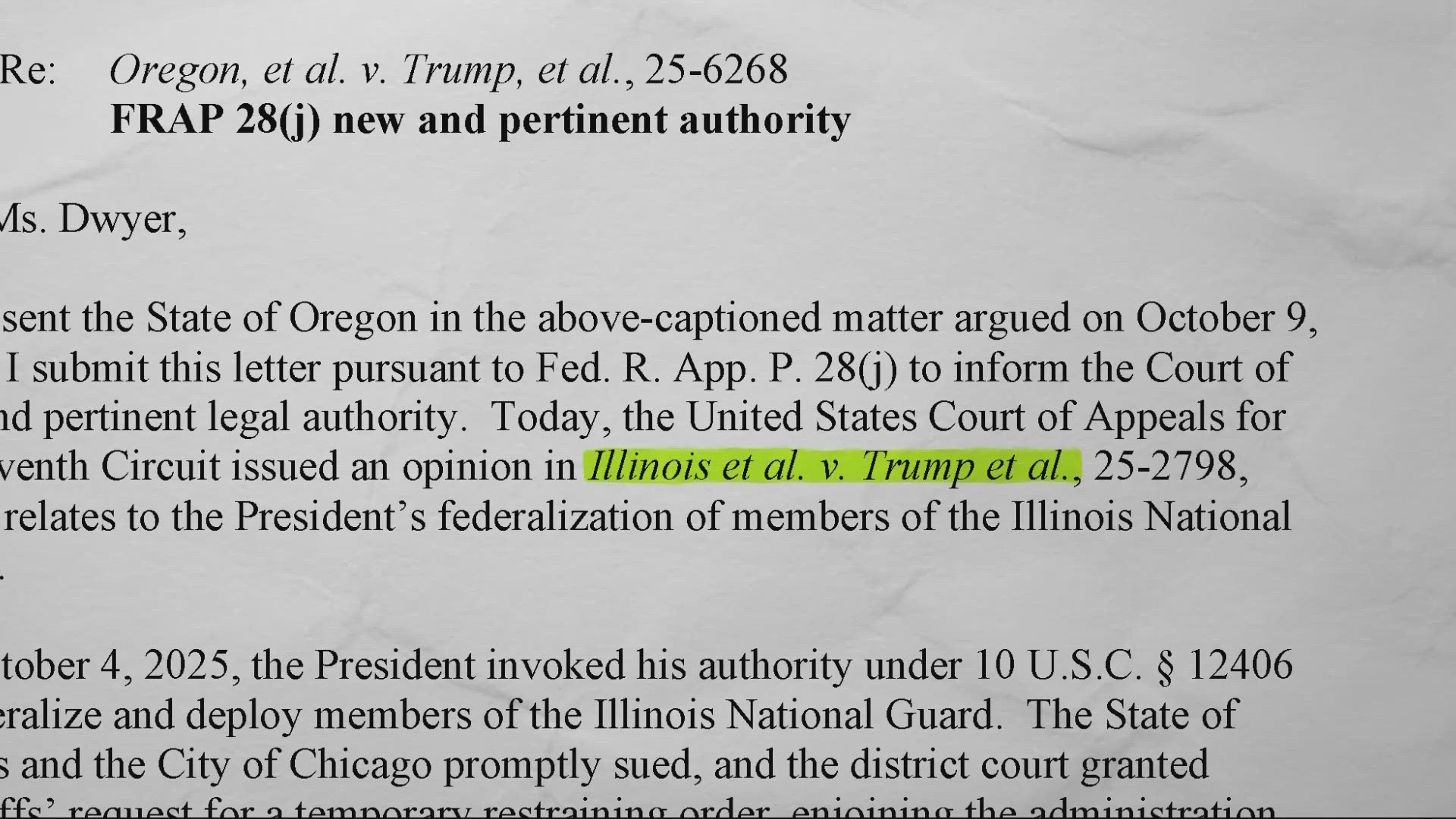State Cites “Pertinent Legal Authority” from Recent Illinois Case
PORTLAND, Ore. — Attorneys for the state of Oregon are asking a federal appeals court to consider a new decision from Illinois that could affect whether National Guard troops may be deployed in Portland.
In a filing Thursday, Assistant Attorney General Stacy Chaffin urged the 9th U.S. Circuit Court of Appeals to review a recent ruling from the 7th Circuit, which blocked the Trump administration’s attempt to federalize and deploy 500 National Guard members in Chicago.
Chaffin called the Illinois decision “new and pertinent legal authority” directly relevant to Oregon’s ongoing challenge against the federal government’s effort to send National Guard troops into Portland amid months of protests.
Also Read
The Illinois Precedent
The Illinois case, decided by a three-judge panel of the 7th Circuit, upheld a lower court’s order preventing the president from deploying Guard units from Illinois, Texas, and California.
The panel found that the administration’s justification for invoking federal authority was insufficient, even when viewed with “substantial deference” to presidential discretion. The court further clarified that civil protests — even those involving organized demonstrations, civil disobedience, or isolated violence — do not constitute a rebellion under federal law.
That distinction, Oregon’s lawyers argue, supports their claim that the situation in Portland does not meet the constitutional threshold necessary for the president to seize control of the state’s National Guard.
Implications for Oregon’s Case
The Oregon case is currently before the 9th Circuit, which heard oral arguments last week. The key question: whether the president has the authority to federalize and deploy Oregon’s National Guard without the state’s consent.
The state contends that such a move would violate both the 10th Amendment and federal statutes governing the National Guard, which generally require state cooperation except in times of insurrection or rebellion.
By contrast, attorneys representing the Trump administration argue that escalating unrest in Portland qualifies as an emergency threatening national security and justifies federal intervention.
Unlike the Illinois case — which was decided solely on written submissions — the Oregon case featured live arguments from both sides. Still, Oregon’s legal team believes the Illinois decision underscores that the federal government’s rationale does not meet constitutional standards.
Restraining Order Still in Effect
For now, the temporary restraining order blocking the deployment of Oregon National Guard troops remains in place. The 9th Circuit has not indicated when it will issue its ruling, but the outcome could set a major precedent for the limits of presidential power during domestic unrest.
The state’s filing argues that the Illinois decision provides an important roadmap for judicial restraint: “Even when protests are tense or disruptive, they do not justify treating American cities as battlegrounds,” Chaffin wrote.
As the nation watches two similar cases unfold in parallel, the courts’ final decisions may determine how far any president can go in using the National Guard on U.S. soil — and who has the ultimate authority when federal and state governments collide.












